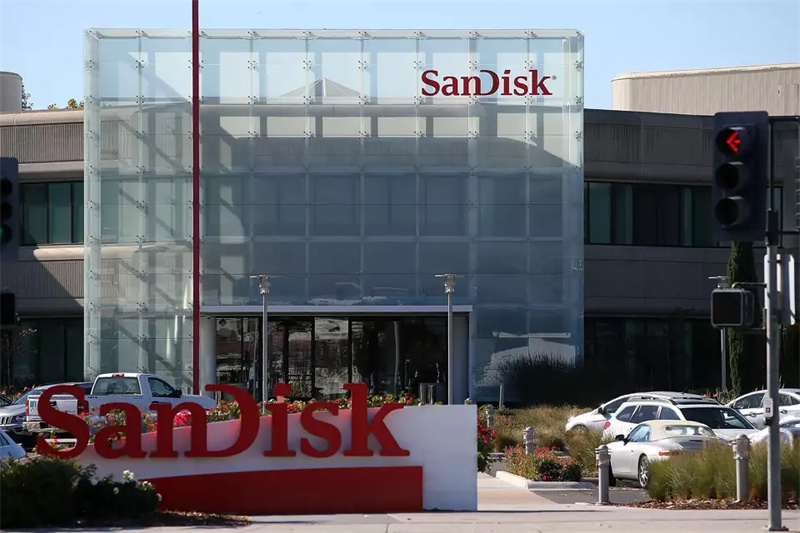On July 16, Michigan Governor Gretchen Whitmer confirmed that Sandisk has scrapped plans to build a massive semiconductor manufacturing facility in Mundy Township, Genesee County. The decision ends a proposed $55 billion investment that was expected to create up to 10,000 jobs and become one of the largest economic development projects in the state's history.
Sandisk, which spun off from Western Digital earlier this year, had selected the 1,300-acre Mundy site as the sole finalist for a four-factory chipmaking campus. The project, dubbed “Project Grit,” would have produced next-generation NAND flash memory and spanned 13 million square feet, with operations planned between 2025 and 2045. It was supported by a wide-ranging package of incentives, including $2.2 billion in state grants, tax exemptions, and workforce development funding, along with more than $20 billion in long-term state and local contributions.
Demolition work to prepare the site had been underway throughout 2025, funded in part by $260 million from the Michigan Economic Development Corporation. But the deal unraveled in recent months as U.S. political uncertainty—especially over tariffs—intensified and federal CHIPS Act funding negotiations stalled.
"Massive national economic uncertainty" was cited as the key reason behind Sandisk's withdrawal. The company reportedly informed state officials that it no longer planned to build the plant in Michigan—or anywhere in the U.S.

The announcement is a major setback for Michigan's semiconductor ambitions and for the Biden administration's efforts to revitalize domestic chip manufacturing through the CHIPS Act. State lawmakers and local leaders expressed frustration, pointing to former President Donald Trump's renewed tariffs and criticisms of the CHIPS Act as contributing factors that raised costs and spooked investors.
"This could have transformed the region," said State Rep. Kristen McDonald Rivet. "But erratic federal policy and tariffs killed 10,000 high-paying jobs and a once-in-a-generation opportunity."
The project's collapse comes just weeks after Trump signed a new tax law that raises the chip investment credit to 35% but also extends the construction deadline past 2026—adding further uncertainty. Economists note that while the U.S. semiconductor sector remains strong, companies like Sandisk are under pressure, facing billion-dollar losses and investor scrutiny.
Despite the setback, local officials remain hopeful. “We still have the best advanced manufacturing site in North America,” said Tyler Rossmaessler, Executive Director of the Flint & Genesee Economic Alliance. “We will continue working to bring a transformational project to the region.”
The canceled deal also follows broader industry hesitancy toward large-scale U.S. projects. Intel and Wolfspeed have recently delayed or scaled back their European and domestic chip expansions, citing geopolitical and economic headwinds.
Michigan was also previously a finalist for a $100 billion Micron plant, which ultimately went to New York.
For now, Sandisk has declined to comment, citing a quiet period ahead of earnings. But with its exit, Michigan loses a flagship opportunity to anchor the next generation of American semiconductor manufacturing.
 www.ic-pcb.com
www.ic-pcb.com
Sandisk, which spun off from Western Digital earlier this year, had selected the 1,300-acre Mundy site as the sole finalist for a four-factory chipmaking campus. The project, dubbed “Project Grit,” would have produced next-generation NAND flash memory and spanned 13 million square feet, with operations planned between 2025 and 2045. It was supported by a wide-ranging package of incentives, including $2.2 billion in state grants, tax exemptions, and workforce development funding, along with more than $20 billion in long-term state and local contributions.
Demolition work to prepare the site had been underway throughout 2025, funded in part by $260 million from the Michigan Economic Development Corporation. But the deal unraveled in recent months as U.S. political uncertainty—especially over tariffs—intensified and federal CHIPS Act funding negotiations stalled.
"Massive national economic uncertainty" was cited as the key reason behind Sandisk's withdrawal. The company reportedly informed state officials that it no longer planned to build the plant in Michigan—or anywhere in the U.S.

The announcement is a major setback for Michigan's semiconductor ambitions and for the Biden administration's efforts to revitalize domestic chip manufacturing through the CHIPS Act. State lawmakers and local leaders expressed frustration, pointing to former President Donald Trump's renewed tariffs and criticisms of the CHIPS Act as contributing factors that raised costs and spooked investors.
"This could have transformed the region," said State Rep. Kristen McDonald Rivet. "But erratic federal policy and tariffs killed 10,000 high-paying jobs and a once-in-a-generation opportunity."
The project's collapse comes just weeks after Trump signed a new tax law that raises the chip investment credit to 35% but also extends the construction deadline past 2026—adding further uncertainty. Economists note that while the U.S. semiconductor sector remains strong, companies like Sandisk are under pressure, facing billion-dollar losses and investor scrutiny.
Despite the setback, local officials remain hopeful. “We still have the best advanced manufacturing site in North America,” said Tyler Rossmaessler, Executive Director of the Flint & Genesee Economic Alliance. “We will continue working to bring a transformational project to the region.”
The canceled deal also follows broader industry hesitancy toward large-scale U.S. projects. Intel and Wolfspeed have recently delayed or scaled back their European and domestic chip expansions, citing geopolitical and economic headwinds.
Michigan was also previously a finalist for a $100 billion Micron plant, which ultimately went to New York.
For now, Sandisk has declined to comment, citing a quiet period ahead of earnings. But with its exit, Michigan loses a flagship opportunity to anchor the next generation of American semiconductor manufacturing.
$55 Billion Michigan Chip Plant Cancelled Amid Tariff Uncertainty And Economic Turmoil
On July 16, Michigan Governor Gretchen Whitmer confirmed that Sandisk has scrapped plans to build a massive semiconductor manufacturing facility in Mundy Township, Genesee County.
 www.ic-pcb.com
www.ic-pcb.com
